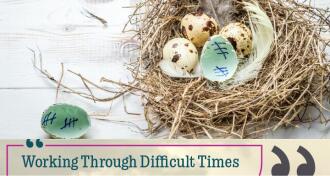
Was your community association lucky enough to come in under budget last year?
On the surface, this might appear to be a bonus, but if not handled properly, it can quickly turn into an unexpected tax burden.
Taxation of Community Associations
Almost all community associations in North Carolina are formed as non-profit corporations, which are taxed as corporations. This means community associations should file an IRS Form 1120 ("U.S. Corporate Income Tax Return") at the federal level. However, a community association may elect to be taxed as a "homeowners association" under Section 528 of the Internal Revenue Code of 1986, as amended ("Code"), and file a Form 1120-H ("U.S. Income Tax Return for Homeowners Associations").
Oftentimes, a community association's articles of incorporation, bylaws, or declaration will require that the association make this election. If your community association chooses to file a Form 1120-H, it will be taxed at a 30% federal income tax rate on its "homeowners association income." In addition, the election means that the association is not eligible to avoid tax on excess income. However, the good news is that "homeowner association income" does not include membership dues, fees, and assessments.
Taxation as a Regular Corporation
A community association that does not elect to be taxed as a Code Section 528 homeowners association (and file a Form 1120-H) is taxed as a regular corporation subject to standard federal and state income taxes. Under these standard tax rules, taxable gross income includes "all income from whatever source derived." Code Section 61.
But in the case of membership funds paid to community associations, the funds are viewed not necessarily as income but as monies held by an agent (the community association) to pay expenses for its principal (the members or owners of the community association). For example, Revenue Ruling 75-370 found that condominium owner assessments are not treated as taxable income to the condominium association "since the funds are received by the community association for the unit owners to be used solely for the benefit of the unit owners."
Handling Excess Assessments
Where a community association has received assessments from its members during the year in excess of its budgeted expenses, the Internal Revenue Service ("IRS") determined, in Revenue Ruling 70-604, that the excess amounts are not taxable income to the association itself where the members vote at the end of the year either to: (1) apply excess assessments to their future assessments; or (2) rebate the excess amounts back to the members.
The IRS made this key ruling with respect to excess assessments received by a condominium management corporation. In its ruling, the IRS noted that the stockholder-owners of the condominium association held a meeting each year at which they decided what to do with any excess assessments not actually used for association expenses. Your community association's membership will need to do the same to take advantage of this tax exemption—take a vote (either in person or by written ballot) before the association files its Form 1120.
After issuing this ruling, the IRS clarified, in several informational letters, that the ruling did not mean that condominium and homeowners associations could retain excess assessments from year to year in a working capital reserve without recognizing the amounts as taxable income. Accordingly, your community association may not apply excess assessments to its reserve account. It must either: (1) return the excess assessments to the membership or (2) apply the excess assessments to the next fiscal year, thereby reducing the subsequent year's annual assessment.
Authority of the Community Association Board of Directors
Under the North Carolina Planned Community Act and the North Carolina Condominium Act, the board of directors has the authority, not the members, to decide if excess funds will be returned to the members, used for reserves, or used to offset assessments for the following year. If the board of directors does decide the funds will be used to offset future assessments the, the members should vote to take advantage of the exemption.
Thus, both federal and state law authorizes a community association to avoid excess assessments by returning such excess to its members or by applying such excess to the subsequent year's budget. However, both of these Acts vest the financial affairs of a community association in the association's board of directors, not the members.
Accordingly, if your community association comes in under budget for any tax year, we recommend that your community association's board of directors include with its annual membership minutes an action item for the members to vote upon adopting Revenue Ruling 70-604 to avoid paying taxes on any excess assessments.
Summary of Steps to Avoid Federal Income Tax
To sum things up, your community association can avoid federal income tax on any excess assessments it has at the end of the fiscal year if:
- it files a regular IRS Form 1120;
- its members take a vote each year to apply the excess towards next year's operating budget;
- the vote is either in person or via written ballot at the annual membership meeting before the community association's tax return is filed.
Conclusion
If you require guidance on effective tax management for your community association, contact an attorney from our Community Associations team. They possess the knowledge to provide invaluable assistance in this matter.
--
© 2024 Ward and Smith, P.A. For further information regarding the issues described above, please contact or .
This article is not intended to give, and should not be relied upon for, legal advice in any particular circumstance or fact situation. No action should be taken in reliance upon the information contained in this article without obtaining the advice of an attorney.
We are your established legal network with offices in Asheville, Greenville, New Bern, Raleigh, and Wilmington, NC.








